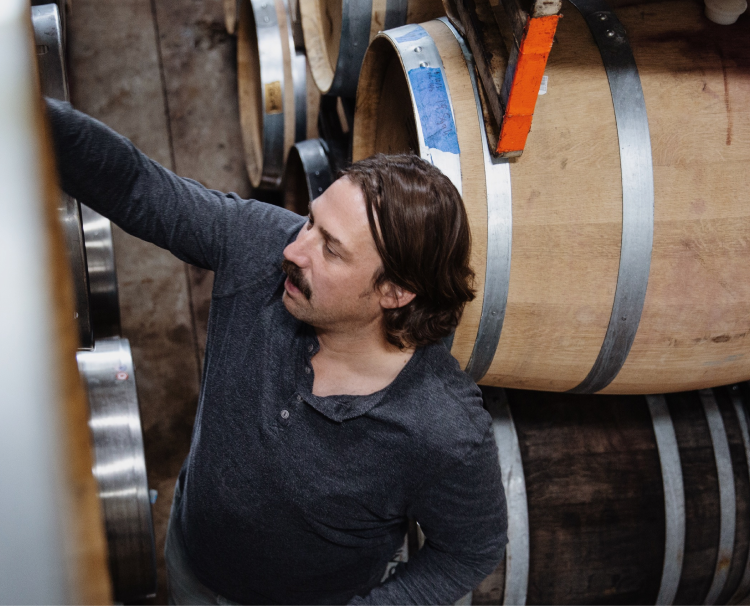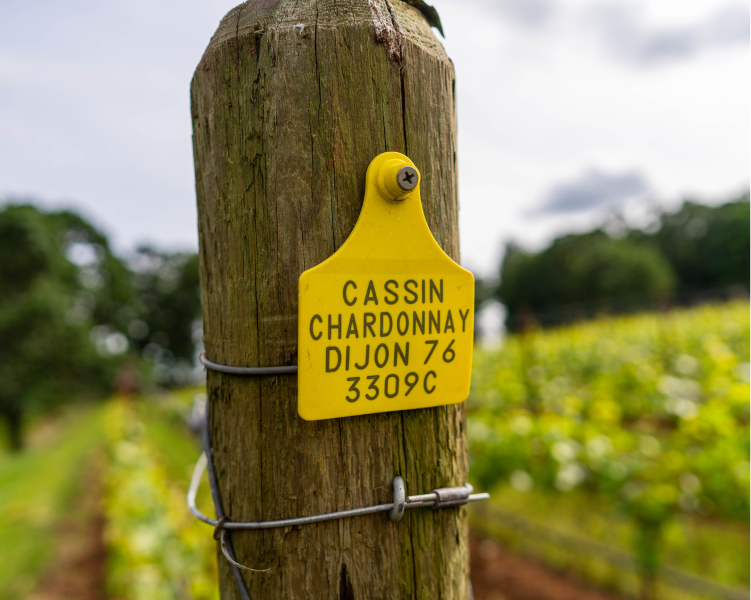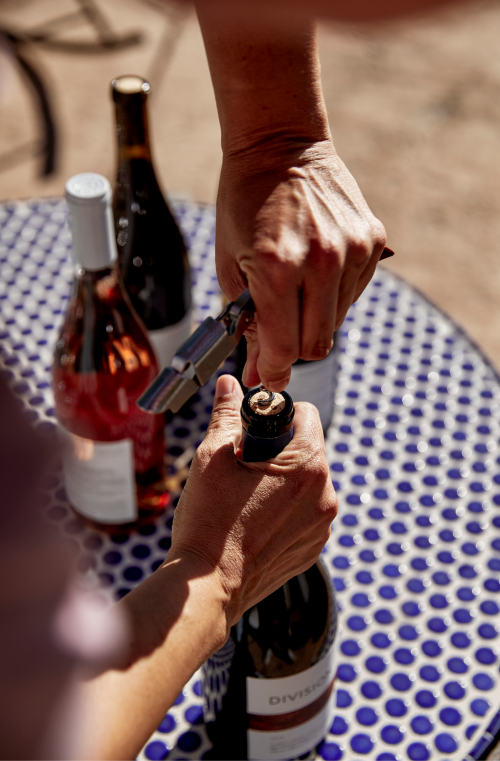Words with Kate Norris
Kate Norris is the co-owner & co-winemaker of Division Winemaking Company. After cutting her teeth working in wine in France, Kate has since become a leader in Oregon winemaking. Working closely with organizations including the Oregon Wine Board and the Willamette Valley Wineries Association, Kate is often the one to encourage change and diverge from the path of sameness. Often found with her sleeves rolled up in her trusty Carharts, Kate’s approach to winemaking is open minded, always evolving and simple: drink good things with good people.
What drives you to make wine? It comes down to the very fabric of what wine is. It’s an incredible way to connect mother earth and the time space continuum, and at the end of the day it makes people happy. You don’t drink whiskey for the same reasons. At its essence it is artistry, joy, the most all encompassing job out there. You think about fashion, marketing, science, what’s appealing to people, you get to be 100% vulnerable, year after year. That challenge is thrilling, humbling, and rewarding. I’m always asking myself, did I translate what mother nature gave us well? I’m the luckiest girl on earth, getting to make wine.
What does the future of Division look like? For years we’ve been hindered by the size of our building, time, mother nature, and pandemic. I feel like we’re really finding our stride when it comes to winemaking and production. We still feel like the young ones, but we’re not the new generation now. 12 years have gone by in the blink of an eye. We’ve entered a new era in our story, we have something to say, and a really different outlook for wine in this region: we respect the past, but are looking straight on to the future. We’ve been fortunate that people have taken notice. When I think about the future, I feel like a kid, dreaming up what I will be when I grow up.
Where is the wine industry going? Millennials don’t drink wine, so we’ve got a conundrum, and a lot of competition from other industry sectors. On the flip, the American market – those who do drink wine – have gotten really into it. It’s been like speed dating, such a quick increase in wine knowledge, access to information, directly to the producers. The future of wine is really all about being true to yourself and listening to your own market. And even though we’re in this weird moment, wine is never going away. It’s been here for thousands of years! Where it lands in the United States, is still up for grabs. We have a short attention span here. I imagine sustainability is never going away. We also need to address industry inequity. We need to face up to the mistakes of the past, fight for better rights, and educate the consumer on why changes are a good thing. Our job as winemakers is going to be a part of this rise, and revolution.
What is wine to you? Above all, it has to be delicious. Nothing gives me more pride than when I’m at a big dinner with people, and I spy someone trying to shake out the very last bit of one of our wines. That’s when you’ve nailed it. Wine needs to have intrigue, tell a story. That can be done in different ways, expressing a single vineyard, multiple varieties. It’s a test every single time. Being able to be fast thinkers, turn on a dime, is a specialty of ours. Winemaking is so precious for some people, but we always say it’s just a good time at the end of the day. It’s not magic, it’s hard work.
What is your approach when you set out to make a new wine? First things first, I need to get inspired. I may find myself gravitating to other regions, or what other winemakers are making. Then I sit down, and think whether that style makes sense for us in the PNW, in terms of grapes, soil. Then does it fit within the lexicon of how Tom and I make wine, would it be a giant strange directional shift, or a push that we’d really enjoy. Next we look for the grapes. Grape sleuthing is the really difficult part. When we approach a new product, we baby that ferment. Literally the amount of attention that new ferment gets is ridiculous, checking on it every 10 minutes. It could be a brand new variety to us, sparkling, skin contact, etc. There are also some serious stakes with experimentation, so while we never want to stop exploring, we also want to nail a new wine on the first try.
In Good Company
Sign up for our newsletter, In Good Company, to receive stories on winemaking and the latest news on wine releases, events, and more.


